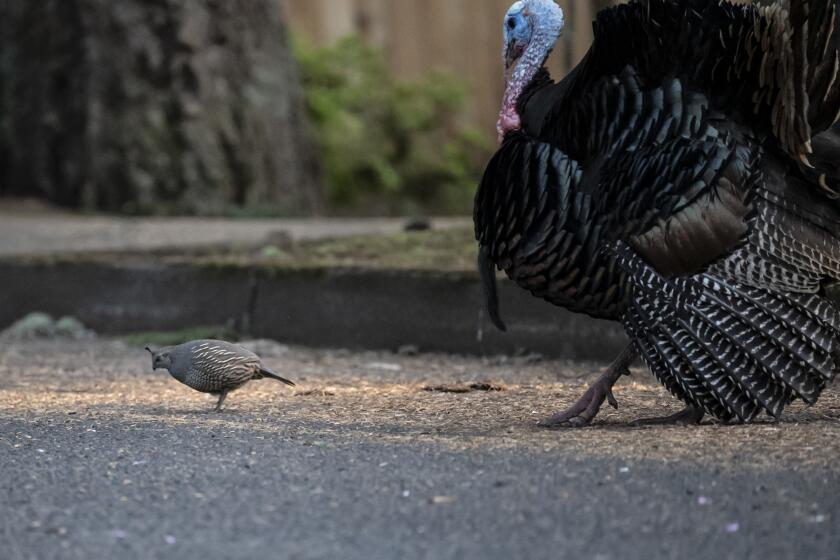Records Withheld in Racetrack Probe
California labor authorities say some key thoroughbred trainers are thwarting an ongoing investigation into possible overtime and minimum wage violations at California’s racetracks by collectively refusing to turn over payroll records.
Labor inspectors this summer launched surprise sweeps in the stable areas of five major racetracks, including one at Del Mar in San Diego County last week, to see if low-wage workers who take care of the racehorses are getting paid properly.
But now, in an unprecedented move, a Santa Ana attorney is advising a number of prominent trainers to withhold their records from state auditors, said Dean Fryer, a spokesman for the state Labor Commissioner.
“This is really unusual,” he said. “Normally, employers provide what is requested.”
Fryer said that by refusing to give up the documents, the trainers are challenging the labor commissioner to subpoena and take the employers to court.
“That’s really brought things to a halt,” he said.
However, the attorney in question, John Prager, said he has advised some of his clients to withhold the payroll ledgers because labor authorities are being abusive and don’t understand a key, but murky, overtime law that applies to the stable hands.
“If the labor commissioner is not happy, it’s partially their own fault,” said Prager, who represents nine trainers. “These investigators are being abusive to the horse trainers. Some of them are nasty, just plain nasty.”
While some have withheld their paperwork, others have fully complied and turned it over, Prager said.
There are 800 trainers licensed by the California Horse Racing Board to operate at six major racetracks and nine fairgrounds. They employ up to 4,000 grooms, “hot walkers” and exercise riders who often live in the so-called backstretch.
Labor officials have targeted only a percentage of trainers for auditing. Prager’s clients and at least two others who are refusing to turn over their records represent “a major portion of our workload that’s coming to a halt,” Fryer said.
Prager said labor officials are improperly fining trainers for not paying overtime to employees who work more than 40 hours a week. But by the nature of their work, he said, stable hands should be considered agricultural workers and be able to work up to 60 hours without overtime pay.
He said, however, that state law is unclear on this point.
The pay and living conditions of stable hands has become an issue since The Times reported in April that many of the backstretch workers, a largely immigrant work force, lived in substandard housing and complained of receiving less than minimum wage.
Labor officials launched the raids. And legislators in Sacramento introduced a bill that would require housing inspections and make it easier for the backstretch workers to unionize. Horsemen and track owners oppose the measure, saying it would unfairly force them to permit unionization.
As it happens, Prager played a major role 15 years ago when lawmakers last took up the fate of stable hands and overtime pay.
A lawyer for the trainers’ association at the time, Prager helped write a measure that passed in 1987 and specifically classified the stable hands as agricultural workers. Therefore, they were permitted to work seven days a week without being paid overtime.
But in May, the state Industrial Welfare Commission effectively repealed that law, saying federal statutes required stable hands to get overtime after 40 hours.
Prager said the May ruling does not clear up the overtime confusion for stable hands, setting the stage for a legal showdown.
“The state is not going to be able to move forward on all of this without a court decision” clearing the issue up, he said.
However, Miles Locker, chief legal counsel for the labor commissioner, said withholding records only delays the inevitable for trainers. Locker said the law is sufficiently clear that overtime starts after 40 hours a week.
More to Read
Get our high school sports newsletter
Prep Rally is devoted to the SoCal high school sports experience, bringing you scores, stories and a behind-the-scenes look at what makes prep sports so popular.
You may occasionally receive promotional content from the Los Angeles Times.







